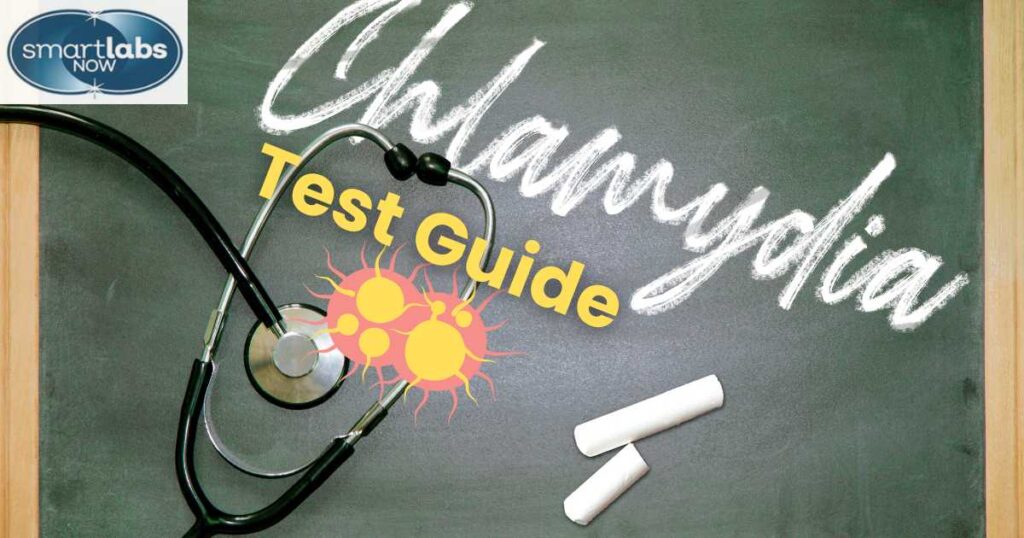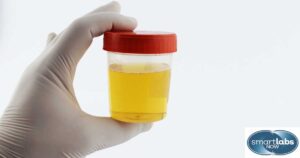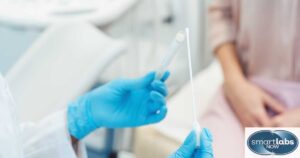
Chlamydia is one of the most common sexually transmitted infections (STIs) in Portland and the greater U.S., with millions of new cases reported each year. It’s essential to stay informed about chlamydia and the testing process to protect yourself and others.
Here’s everything you need to know about chlamydia testing, from how it works to why it’s critical for sexual health.
If you would like to get straight to booking your test, please schedule it here 🙂:

Chlamydia testing serves several important purposes. For sexually active individuals, routine screening is key because many people infected with Chlamydia trachomatis may not show symptoms—this is called being asymptomatic. Left untreated, chlamydia can lead to complications such as infertility, pelvic inflammatory disease, or increased risk of HIV transmission.
Testing is recommended for:
The most reliable test, NAAT detects bacterial DNA in urine or swab samples, offering high accuracy. However, this can be a bit expensive.
A less common test but still used in some settings, such as correctional facilities.
These are often done in sexual health clinics or as part of routine exams and involve a genital swab, urine sample, or rectal swab based on sexual practices. At Smart Labs Now, we prefer this method for its accuracy, speed, and relatively low cost 🙏.
These can be requested if symptoms arise after potential exposure or after a partner’s positive result.
Retesting three months after treatment is crucial to ensure the infection is gone and to avoid complications related to treatment failure.

Before taking a chlamydia test, you should follow any special instructions from your healthcare provider/lab technician to ensure accuracy:
If you’ve taken antibiotics for a recent infection, you may need to wait a certain period before testing to avoid false negative results.
Some may choose to use at-home test kits. These are convenient but may require consultation with a doctor to interpret results and begin treatment if positive. We recommend avoiding these and coming to the lab to get tested. This keeps costs at a minimum and minimizes the need for follow-ups.

The testing process is straightforward and depends on the sample type. Here’s what to expect:
Often used for men, this involves collecting a urine sample to detect the presence of the bacteria.
More common for women and those engaging in anal or oral sex. Vaginal swabs, genital swabs, urethral swabs, and rectal swabs may be used depending on the site of infection. Throat swabs may also be collected if there’s a possibility of oral chlamydia.
Some tests allow for self-collection of samples, particularly with at-home test kits. You can follow simple instructions to collect a sample and send it to a lab for analysis. However, these can be unreliable on occasion.
A nucleic acid amplification test (NAAT) is the most common and reliable method in healthcare settings. However, if complications like eye infections occur, additional tests, such as cell culture or an eye swab, are sometimes necessary.

Understanding your test results is critical for your health and well-being:
For either result, a healthcare professional can guide the next steps, including how to notify sexual partners and manage any potential complications.

After receiving your chlamydia test results, the next steps are crucial:
These (usually azithromycin or doxycycline) are prescribed for treatment if you test positive.
These may be necessary if complications arise or the infection persists after treatment.
You must notify your sexual partners, as chlamydia can be passed even when asymptomatic. Partner treatment is essential to prevent common reinfection.
Safe sex practices such as condom use can lower your risk of future infections. Refraining from sex until both you and your partner complete treatment and are retested is crucial to avoid reinfection.

While chlamydia testing carries some minor risks, such as discomfort during sample collection or inconclusive results, the benefits far outweigh them. Testing can:
Those at high risk of infection, including individuals with multiple sex partners, should prioritize testing during routine health check-ups or after engaging in unprotected sex.

In the US, accessing a chlamydia test is nowadays easier than ever. Many facilities offer discreet and affordable testing options.
Sexual health clinics and genitourinary medicine clinics provide routine screening, often covered by health insurance. However, this route can involve long waiting times and queues 😬.
For those preferring privacy, at-home chlamydia tests are available, with results processed through a lab. If you’re in Portland, call us at (503) 477-7748 to make potential arrangements for this 👍.
The Centers for Disease Control and Prevention (CDC) and the National Chlamydia Screening Programme advocate for routine screening, especially among high-risk populations.
Self-collection kits, postal testing kits, and lab-based urinalysis options provide flexibility. Still, following up with a healthcare provider if you test positive or experience symptoms is important.

For those in Portland seeking fast, reliable, and confidential chlamydia testing, Smart Lab Now offers both in-lab and on-site (mobile) testing options. With accredited facilities, affordable pricing, and a commitment to protecting your privacy, we ensure your testing is stress-free and accurate.
Our comprehensive STD testing includes highly accurate chlamydia and gonorrhea tests. Whether you’re visiting our lab or requesting an at-home test, you can rest assured that your sexual health is in safe hands.
Please consult your primary care physician before engaging with any pharmaceutical, natural substances, or activity regimens mentioned or prescribed in this post. Smart Labs Now is not responsible for health or life outcomes based on the information or recommendations provided. This account does not serve as a substitute for professional medical advice/help.